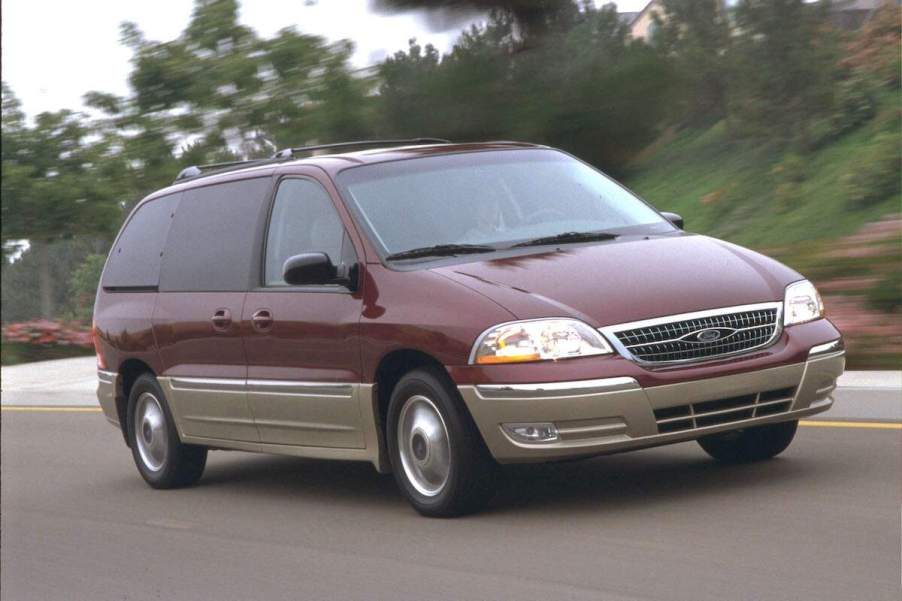
Will Ford Ever Make Another Minivan?
Once a staple on American roads in the ’90s, minivans have seen a steep decline in popularity. However, these trusty family haulers have recently seen a resurgence. Minivan sales have shown signs of improvement, suggesting a renewed interest in these versatile vehicles. A few automakers still produce minivans. The Chrysler Pacifica is the best-seller in the segment, followed by the Honda Odyssey, Kia Carnival, and Toyota Sienna. However, Ford hasn’t produced a minivan since the last Freestar rolled off the assembly line in 2007. Is the time ripe for a return?
Ford minivans struggled during their 20-year history

Ford’s foray into the minivan market began with the Aerostar in 1986. It was a rear-wheel-drive model, which set it apart from the front-wheel-drive Chrysler minivans gaining immense popularity. The Aerostar offered some innovative features but failed to capture the same appeal and success as its Chrysler counterparts.
Despite the Aerostar’s relative failure, Ford forged ahead, releasing the Windstar in 1995. The new minivan aimed to compete with Chrysler’s wildly popular Dodge Caravan and Plymouth Voyager. Unlike the Aerostar, the Windstar featured front-wheel drive, aligning it more closely with its rivals’ design.
Still, the Windstar struggled against Chrysler’s juggernauts. Though it gained some market share, the Ford minivan couldn’t match the popularity of the Caravan and Voyager. Not helping matters was a safety recall involving hundreds of thousands of Windstar models. Corrosion could cause the rear axle to fail, rendering the minivan difficult to control.
The auto giant discontinued the Windstar after the 2003 model year. From 2004 through 2007, the company produced the Freestar, a modern version of its predecessor. But by then, American consumers had already discovered SUVs.
Will Ford ever produce another minivan?
Never say never. However, Ford hasn’t announced any plans to introduce a new minivan despite minivan sales seeing a recent revival. In fact, the automaker recently discontinued its Transit Connect passenger van.
Ford’s decision to retire the Transit Connect in North America after the 2023 model year is part of the company’s strategy to reduce global manufacturing costs and complexity. The compact van segment has experienced decreased demand, prompting Ford to streamline its lineup, Automotive News reports.
Overall, discontinuing the Transit Connect in North America aligns with Ford’s objective of optimizing production and responding to changing market demands. The company’s focus may be shifting toward other vehicle categories with greater growth and profitability potential.
The Transit Connect is the company’s closest vehicle to a modern minivan
The 2023 Ford Transit Connect is a three-row passenger van that often goes unnoticed despite its impressive features. With spacious seating, multiple trim levels, and reasonable pricing, it’s an appealing option for families.
It’s slightly shorter than modern minivans, making navigating congested areas easier. And it has excellent cargo space, 106 cubic feet with the second and third rows down. The price range for the Transit Connect is about $29,000 to $35,000 with all options selected.
Unfortunately, the Ford Transit Connect has declined in popularity. In Q1 2023, U.S. sales decreased by 48% compared to Q1 2022, with 3,823 units delivered. In Mexico, Transit Connect sales totaled 118 units during the same period. In contrast, the Ram ProMaster City outperformed the Transit Connect in the compact van segment, with sales growing by 232% to 5,678 units in Q1 2023. The ProMaster City captured 60% of the market share, while the Transit Connect held only 40%.


